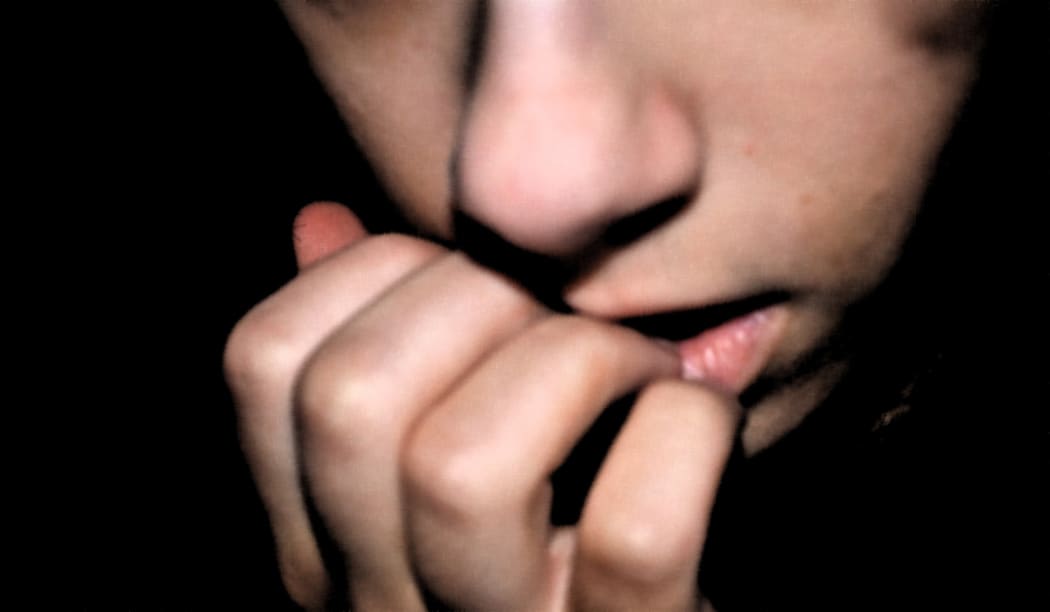Children have different fears at different ages and should never be given the message their anxious feelings are wrong or bad, clinical psychologist Kirsty Ross says.

Photo: Flickr/ASweeneyPhoto
She shares some tips for managing kids' anxiety and answers listeners' questions.
The anxiety response in both children and adults is either fight, flight or freeze, Dr Ross says.
A child who seems angry can also be scared or anxious – lashing out verbally or physically can be a missed signal that is misinterpreted as aggression.
Once they've calmed down, check in with the child on what was happening for them, she says.
"If there's particular triggers or situations where there's a similar reaction, that may indicate a lot of anxiety – it could be a test at school, it could be a school function, it could be cross-country, it could be all sorts of things."
Resisting the natural urge to "fix" the child or situation by distraction them, and instead "sitting with" their distress is an empathetic skill it's important for parents to teach their children how to do, she says.
"Just sitting and giving your [child] a hug and saying 'There's some really big stuff going on, isn't there? And it's hard. As an adult I find it hard, too" is not going to make things worse."
Don't worry that by giving their feeling a name in this way you'll put the thought in their head, Dr Ross says.
"They already know they're upset, what they then know is that you see that."
While it's a lovely idea to shield kids from the troubles of the world, they're now being taught at school how to research and find things out online, she says.
Such attempts to protect them may actually result in you having less awareness of the ideas they're forming, she says.
"If we don't at least say we're happy to answer questions and we know there's big stuff going on and we're available to talk to, the risk is the kids will get their information from other people and it may not necessarily fit with what we believe as parents or it may not even be accurate."
Thinking globally can be overwhelming for both children and adults, she says, so it can help to focus on what your family does day-to-day.
"With global warming, [our family talks] about what's within our control. We can do the recycling, we can make sure we turn off the lights, we can not run the water while we're brushing our teeth – little things that help you feel like you're doing your bit."
For young children, a dedicated 'worry time' after dinner or before bed can also be helpful, says Dr Ross.
Kids can decorate an empty tissue box which becomes a 'worry box'. They write worries down and post them into the box whenever they like, then at 'worry time' you pull them out and look at them together.
Some worries can be problem-solved together and it's easier for the child to talk about the thing they're worried when they're not sitting in front of it, she says.
"It' a really helpful time when you are nice and calm to think about 'When I do go into that test tomorrow what are some things that I can say to myself? What's some calm breathing that I can do that'll help me to calm down? ... The time when you're not in it is the time to plan for it."
Things like the worry box send a message to your child early on that you're present and want to have open conversations about feelings, she says.
Hugs are also underrated, especially if your child is angry-anxious.
"It does remarkably calm kids down. It's a really powerful thing to do."
Like depression, anxiety can lead to low mood, so look out for children not wanting to do the things they previously enjoyed – in younger kids, this might be a resistance to going to school, in adolescents, it might be isolating themselves.
If your child has physical symptoms of anxiety – such as getting hot or a racing heart or clammy hands – it can be a good idea to get these checked out by a doctor, she says.
A conversation with the GP is also a good starting point if you see a change in your child that concerns you and you don't feel that anything you're doing or saying is make a difference.
"They are the people who can refer out to counselling or whatever it might need to be."
Sometimes it can be helpful just to hear that your child isn't experiencing anything out of the ordinary, she says.

